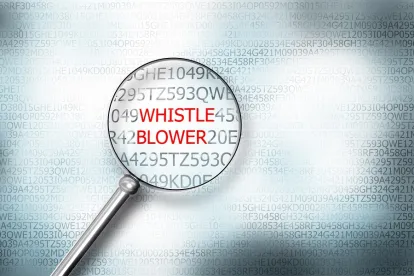In this issue, we provide an overview of 34 recently unsealed qui tam cases and take an in-depth look at cases involving claims against rehabilitation and hospice providers and a provider of clinical laboratory testing services. In addition, we present our own analysis of health care qui tam litigation trends, based on filings against health care–related entities in the 12-month period that ended on September 30, 2017.
Overview of Qui Tam Activity
-
We identified 34 health care–related qui tam cases that were unsealed in July 2017.
-
Of those cases, the government intervened, in whole or in part, in six cases and declined to intervene in 28.
-
The 34 unsealed cases were filed in 21 different courts. Five of those cases were filed in the Southern District of Ohio, while three each were filed in the District of Arizona and the Western District of Virginia.
-
The targeted entities included four cases against laboratory testing companies, four cases involving pharmacy-related businesses, and, in what appears to be a growing trend, five cases against companies operating hospices.
-
As is typical, the relators are overwhelmingly current and former employees. Twenty-one cases were brought by former employees, while four were brought by current employees. One case was brought by a consultant to a defendant.
-
While long delays in unsealing were the norm, there was one case that was unsealed just 64 days after filing, and seven that were under seal for less than six months. But even with those few promptly unsealed, cases were under seal for an average of two years, with the longest-sealed case waiting almost seven years to be unsealed.
Featured Cases
The Trakhter and Bourne Cases Against Provider Services, Inc.
United States, ex rel. Trakhter v. Provider Services, Inc., No. 1:11-cv-00217-TSB (S.D. Ohio)
Complaints Filed: April 13, 2011
Complaints Unsealed: July 14, 2017
Intervention Status: On July 5, 2017, the United States intervened for the purpose of settlement.
Claims: False Claims Act (“FCA”), 31 U.S.C. § 3729(a)(1)(A) (False or Fraudulent Claims); FCA (a)(1)(B) (False Statements)
Defendants’ Business: The defendants operate long-term care facilities as well as skilled, intermediate, and long-term care nursing facilities where patients receive, among other things, rehabilitation services including physical, occupational, and speech therapy.
Relator: Vladimir Trakhter
Relator's Relationship to Defendants: Relator Trakhter is a physical therapy assistant who was employed by defendant Olympia Therapy, Inc. to provide therapy to residents of a nursing home that is owned and operated by defendant Provider Services, Inc.
Relator’s Counsel: Hochman Plunkett Co., L.P.A. and Korein Tillery, LLC
Summary of Case: See the Bourne case below.
United States ex rel. Bourne v. Colleran, No. 1:12-cv-00935-TSB (S.D. Ohio)
Complaint Filed: December 6, 2012
Complaint Unsealed: July 14, 2017
Intervention Status: On July 5, 2017, the United States intervened in-part for the purpose of settlement.
Claims: FCA, 31 U.S.C. § 3729(a)(1)(A), (a)(1)(B), (a)(1)(C), and (a)(1)(G); FCA § 3730(h) (Anti-Retaliation)
Defendants' Business: The defendants own and operate both assisted living nursing facilities and long-term care facilities, and provide hospice services and home health care.
Names of Relators: Paula Bourne and La’Tasha Goodwin
Relators' Relationship to Defendant: Relator Bourne held positions, including “Executive Director,” at businesses owned by one of the defendants’ executives, Brian Colleran. Relator Goodwin held various positions — including “Director of Nursing” and “Director of Clinical Services” — at a Colleran-owned business.
Relators' Counsel: Morgan Verkamp, LLC
Summary of Cases: This case and the Trakhter case, both of which were unsealed in July 2017, involve two main sets of allegations against Provider Services, Inc. (“PSI”), its executives, and several entities under common ownership and control with PSI.
First, the Trakhter case concerns allegations that, from January 2008 through December 2012, defendants submitted, or caused the submission, of false claims to Medicare for medically unnecessary rehabilitation services at 18 skilled nursing facilities. Medicare payments for therapy are based on the Resource Utilization Group or “RUG” in which the patient falls. Therapy RUGs are divided into five levels of therapy: Ultra High, Very High, High, Medium, and Low. A patient’s RUG is determined largely by the number of treatment minutes the patient receives and the frequency of treatment. Medicare reimbursement increases as the patient requires more therapy, with a facility receiving as much as 500% of the daily rate of a “Low” RUG for a patient who is classified in the “Ultra High” RUG.
The Complaint alleges that defendants inflated the level of care patients required, utilized improper methods to bill the number of minutes of therapy patients received, and otherwise provided unnecessary therapy services to patients for the purpose of obtaining higher levels of Medicare reimbursement. The alleged misconduct included coercing patients to undergo therapy that was painful, unwanted, and/or unnecessary; billing for time spent talking to patients during periods where they were incapable of exercising (billed as “patient education”); and billing for time during which patients were present in the gym, even if they were not engaged in any therapy activities.
The Complaint includes a statistical analysis comparing the RUG classifications at defendants’ facilities with the national average and concludes that defendants placed more patients in higher RUG classifications and fewer patients in lower RUG classifications than the national average, and that these differences were not attributable to mere chance. Similarly, a statistical analysis revealed that defendants provided more minutes of therapy to patients who were in the midst of an assessment period that would determine their RUG classification than to patients who were not in an assessment period, and that this, too, was not attributable to chance.
Second, the Bourne case advances allegations that: (1) from April 2011 through December 2013, defendants submitted false claims to Medicare for hospice services provided to patients who were ineligible for the Medicare hospice benefit because defendants failed to conduct proper certifications or medical examinations; and (2) from January 2008 through December 2012, defendants solicited and received kickbacks to refer patients from skilled nursing facilities to specific facilities and/or providers.
The Complaint alleges that defendants were improperly reimbursed for hospice care for patients whose eligibility for hospice was not properly established, because, among other things, the providers failed to perform required face-to-face evaluations, properly employ nurse practitioners to perform the required face-to-face evaluations, and obtain complete and/or timely physician certifications and also falsely certified that required face-to-face evaluations had occurred. In addition, the Complaint asserts that hospice patients were classified as needing “crisis care,” which is reimbursed at a high hourly rate that may exceed the routine hospice rate by as much as 700%, even where patients did not meet the definition of a patient in crisis.
The Complaint further alleges that defendants encouraged HIPAA violations by requiring administrative staff to review medical records to identify patients who might be eligible for hospice, even if the patient had not inquired about hospice and a doctor had not recommended it. And, in tandem with the allegations in Trakhter, the Complaint charges that patients who should have been moved to hospice were improperly maintained in nursing homes receiving unnecessary therapy, so that defendants could receive therapy RUG reimbursements for as long as possible, since high level RUGs are reimbursed at a higher rate than hospice care.
Finally, there were also allegations that PSI provided services to facilities at a discounted rate in order to induce them to refer their patients to facilities owned and operated by PSI and its executives and/or related entities.
Current Status: On July 25, 2017, the United States Department of Justice announced that defendants Foundations Health Solutions Inc., Olympia Therapy Inc., and Tridia Hospice Care Inc., and their executives, Brian Colleran and Daniel Parker, had agreed to pay approximately $19.5 million to resolve the allegations pertaining to the submission of false claims for medically unnecessary rehabilitation therapy and hospice services. According to the Motion for Attorneys’ Fees submitted by relator Trakhter, approximately $15.5 million of that recovery is attributable to resolving the therapy-related allegations of the Trakhter complaint.
The settlement agreement expressly reserved jurisdiction for the Court to hear and adjudicate the amount of attorneys’ fees and costs owed to relators. On September 7, 2017, relator Trakhter filed a motion seeking attorneys’ fees and costs exceeding $2.1 million. Briefing on the relator’s fee application is due to be completed on December 29, 2017, and a decision will issue sometime in early 2018. Relators Bourne and Goodwin have not yet moved to recover their attorneys’ fees and costs.
Reasons to Watch: These two cases are interesting because they involve multiple qui tamlawsuits advancing overlapping, but somewhat disparate, allegations that were filed by different relators in the same venue against a group of related people and entities. Although the claims involved different entities and different at-issue services, both fundamentally allege misrepresenting patient status and/or providing medically unnecessary services to inflate Medicare reimbursement payments.
These cases illustrate the growing prevalence of FCA claims premised on medical necessity and false certifications and their ability to extract significant settlements from defendants. While many of the factual allegations in these cases are extreme, they nevertheless serve as a reminder of the importance of documenting the medical necessity of services, particularly when they are provided by related entities. These cases also demonstrate that health care entities that give gifts and other forms of remuneration to referral sources may well find that qui tam cases follow. Such suits may include allegations of violations of such other laws as state kickback statutes and the Federal Physician Payment Sunshine Act.
These cases also evidence the escalating focus in fraud and abuse litigation on services provided to the elderly. The rapidly growing senior population has increased the demand for the types of therapy and hospice services that were at issue in these cases. Because such services are reimbursed at higher rates than routine skilled nursing care, law enforcement officials are scrutinizing claims for intensive services provided to the elderly to ensure that they are being provided based on appropriate medical necessity, and not merely to increase patient revenue. Skilled nursing facilities and hospices should be aware of the scrutiny being directed toward their activities and should have appropriate processes and documentation to support claims for intensive therapy when it is provided to their patients.
United States ex rel. Fuller v. FSIX LLC, d/b/a Quick Draw Lab, No. 2:16-cv-00928 (D. Ariz.)
Complaints Filed: April 4, 2016
Complaints Unsealed: September 11, 2017
Intervention Status: The United States declined to intervene.
Claims: The relator brought claims under the FCA, 31 U.S.C. § 3729 et seq., alleging that defendants presented false claims, made false statements material to false claims, and conspired to present false claims or make false statements material to false claims. The relator also brought claims under the Florida False Claims Act, Fla. Stat. § 68-081 et seq; the Georgia False Medicaid Claims Act, Ga. Code § 49-4-168; the Indiana False Claims and Whistleblower Protection Act, Ind. Code § 5-11-5.5 et seq.; the Montana False Claims Act, Mont. Code § 17-8-401 et seq.; the Tennessee False Claims Act, Tenn. Code § 4-18-101 et seq.; and the Tennessee Medicaid False Claims Act, Tenn. Code § 71-5-181 et seq. The relator also brought claims under the anti-retaliation provision of the FCA and Arizona law.
Name of Relator: Laurie Diane Fuller
Defendants' Business: Clinical laboratory testing services
Relator's Relationship to Defendants: Former employee
Relator’s Counsel: Ross Feller Casey, LLP
Summary of Case:
Defendant FSIX, LLC, d/b/a Quick Draw Lab (“QDL”), provided clinical laboratory testing services. Defendant Easy Mobile Labs, Inc. (“EML”) offers mobile phlebotomy services, and recently acquired QDL. QDL was originally run by defendant husband and wife Cindy and Todd Funk, with financial assistance from Cindy’s father, defendant Glenn Welstad.
The relator is a former employee of QDL, and had various duties overseeing QDL’s testing and compliance. The relator’s FCA claims are based on the following allegations regarding the defendants’ conduct:
-
Providing Medically Unnecessary Services. The relator alleges that QDL provided home health services to government health care beneficiaries that were not reasonable or medically necessary. The relator specifically alleges that QDL billed and collected for home health services for patients that were not “confined to the home,” a requirement to qualify for home health services. The relator estimates that less than half of QDL’s patients actually met the homebound criteria. The relator also asserts that QDL failed to certify patients’ homebound status on Medicare claim forms.
-
Fraudulent Billing for Travel. The relator alleges that QDL inflated the mileage claims in order to increase Medicare reimbursement for these services. In addition, the relator contends that QDL billed Medicare for travel when the collection that occasioned the trip did not require a skilled technician.
-
Giving Kickbacks. The relator alleges that QDL paid kickbacks and bribes to physicians to induce referrals of patients to QDL. According to the relator, the kickbacks took the form of non-phlebotomy-related free work for physicians by QDL phlebotomists working in physicians’ offices.
The relator additionally alleges that the defendant, Glenn Welstad, retaliated against her by terminating her employment after she raised warnings about QDL’s billing practices.
Current Status: On October 18, 2017, the relator voluntarily dismissed the allegations against QDL. However, she made a number of identical allegations against QDL’s successor entity, EML. These claims are still pending.
Reasons to Watch: This case involves two areas, home health services and laboratory services, which have been and currently are subject to increased scrutiny by the federal government. As in the Colleran case, this case is another example of the growing role of medical necessity in FCA claims. It also highlights the risk associated with laboratories placing phlebotomists in clients’ offices without adequate monitoring to make sure that such phlebotomists are not providing free non-phlebotomy services to such test-referring clients. While the provision of phlebotomists to perform phlebotomy services may be permissible in certain carefully monitored circumstances, providers should thoroughly evaluate and supervise such arrangements. This case is also a reminder that states often have laws that are analogous to the FCA that can be triggered in situations where the defendant treated Medicaid patients.
Health Care Qui Tam Litigation Trends
Mintz Levin maintains a database of unsealed health care qui tam actions. This enables us to follow and analyze trends in the cases that have been unsealed. The following are some trends in qui tam filings against health care–related entities in the 12 months that ended September 30, 2017:
Where were cases filed? Although cases were unsealed in jurisdictions throughout the country, some interesting trends have emerged as to jurisdictions where the most cases have been unsealed:

Over the 12 months that ended on September 30, there was a significant spike in activity in California, with the Central District — which includes Los Angeles — being most active. Florida — including the Southern District (Miami) — continues to be active, as are courts in Ohio. One unusually active district has been the Southern District of Mississippi, which includes the state capitol of Jackson. Conspicuously absent is Massachusetts, which is ordinarily a hotbed of health care–related litigation.
What kinds of businesses were targeted? Hospitals, hospices, pharmacies, and pharmaceutical companies were most frequently sued in cases unsealed over that 12-month period.

Who brought the cases? The various relator types can be seen in the following chart. The categories in the key are shown in the pie chart with “Competitor” at 12 o’clock, and then continuing clockwise around the chart.

As is typical, the ranks of relators consist overwhelmingly of current and former employees. But the significant presence of contractors on the lists demonstrates that service providers can also be a source of whistleblower lawsuits.
How frequently did the government intervene?

Intervention rates continue to be extremely low, with the government declining to intervene in four out of every five cases unsealed over the 12 months that ended September 30, 2017.






 />i
/>i
